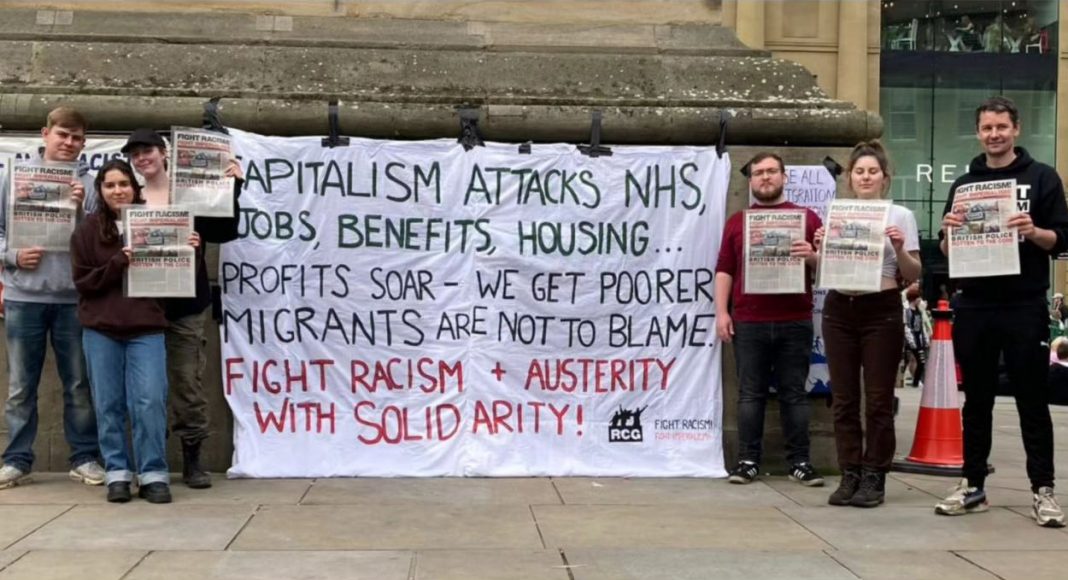With a great fanfare, Lord Darzi’s Review of the NHS was unveiled on September 2023. Commissioned by Health Secretary Wes Streeting days after Labour came into office in July, the Review tells us nothing that we did not already know: that the current NHS crisis was the inevitable outcome of years of austerity, of Tory government reforms, and of a pandemic for which it had been left completely unprepared. There are now 7.6 million people on waiting lists with a ‘tsunami of missed cancers’ (International Cancer Benchmarking Partnership) expected because of the falls in diagnosis during the pandemic and which will now present in a far more advanced stage. Yet on offer are little more than sound-bites about moving care from ‘hospital to community’ and shifting the NHS from ‘analogue to digital’ and from ‘treatment to prevention’.
Current crisis
The impact of the years of austerity, of real-term cuts in NHS funding per head of population, has been drastic: there are about 97,000 beds in the NHS, down from 122,000 in 2009. 13% of the beds are occupied by people who are fit to go home but for many reasons are stuck in hospital, almost half of whom are awaiting a social care package, many of whom had one before they were admitted but interruption of that care means another assessment is required.
A recent report by University College London and the London School of Hygiene and Tropical Medicine has brought together data from primary care and GP practices. Between 2013 and 2023, one in five GP surgeries closed or merged, while the average number of patients registered with a surgery rose by 40%. With more and more GPs working part time, the number of full time equivalent GPs per 1,000 head of population fell by 15%. 90% of first contact with the NHS is via primary care which gets only about 11% of the budget. There are over a million GP appointments every day; most GPs seeing 40 people daily when the safe maximum is set at 25. A quarter of practice premises are unfit for purpose with insufficient consulting rooms.
Adult social care
The situation in adult social care is no less bleak. Council social care budgets were overspent by £586m in 2023/24, the highest level for a decade. The £903m savings required for 2024/25 are the largest since 2016/17, and 90% of social service directors have no confidence that their budgets will be sufficient to meet their statutory duties in 2024/25. More people are requiring more complex support, council-funded home care need is rising, and Continuing Health Care funding is being awarded to only 21% of new applicants for standard care in the first quarter of this year as the eligibility criteria change to save money.
Sound-bites signifying nothing
It has all been said before. More community care? That has been the declared aim of Tory and Labour governments for more than 30 years. Moving from analogue to digital? That was the purpose of the NHS IT programme set up 20 years ago. And ‘prevention rather than treatment’? That depends on many factors, the most significant ones being outside the purview of the NHS – adequate housing, sufficient income to escape dependence on cheap ultra-processed foods and so on. The announcement that winter heating allowances will be stripped from 85% of pensioners will drive more elderly people into needing hospital care, as will the impoverishment of millions of people through benefit caps such as the two-child limit.
Streeting will not offer extra money to restore lost funding. Instead he counterposes ‘reform’, blaming the NHS itself for its problems. Saying ‘NHS waiting lists will need to be millions lower by the end of this parliament…where there is spare capacity in the private sector, the NHS should use that to get waiting lists down’, he wants 40,000 more hospital appointments a week but offers no details of the funding and staffing for this plan. It seems to depend on NHS staff working overtime and weekends, while the capacity of the private sector outside London is a drop in the ocean. It ignores the reality: most doctors working privately are NHS doctors who also do private work. Private hospitals do not have intensive care units, and about 6,000 people every year have to be transferred from the private sector to the NHS for intensive care. The notion that parcelling out work to the private sector is part of a solution is nonsense: every hour a surgeon works in the private sector is an hour less worked in the NHS, and to make matters worse, there is a national shortage of 1,900 anaesthetists.
Labour privatisation
Streeting is an enthusiast for extending private sector involvement in the NHS: small wonder he has received £175,000 donations from companies providing private health care. Darzi wrote a report for the last Labour government in 2008 advocating the merging of GP and some community and diagnostic services into what were called polyclinics. ‘Suitable’ providers were invited to tender for services, and ‘suitable’ included GP practices, NHS bodies, private sector companies and charities. GP practices didn’t stand a chance of competing with multinationals and so in came health provision in primary care run for profit by health care multinationals, including Care UK, United Health, Virgin Health and others. The new Darzi report will be used as a lever to further extend NHS privatisation.
Labour’s commitment to cutting state spending will not exclude the NHS. We have to fight to ensure that there is a service which meets working class need, and that means opposing further bed reductions, further service closures, and further privatisation.
Hannah Caller
FIGHT RACISM! FIGHT IMPERIALISM! 302 October/November 2024




